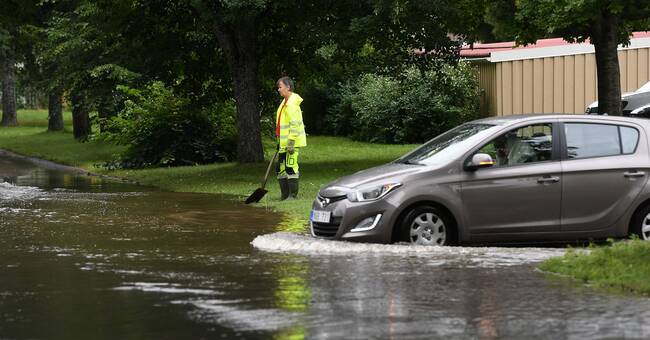Gävle got 162 millimeters in one day, until Wednesday morning.
- It is extremely much in a short time.
Now we need to do more in-depth analyzes.
Different areas in Gävle were affected differently.
We must look further at this, and how we can reduce the risks in the future, states Jan Karlgren, technical manager in Gävle municipality.
More common with extreme weather
As human activity has changed the Earth's climate, weather events we have seen as extreme have become a little more common.
Now it is important to plan buildings correctly, to make calculations of where rain masses from any torrential rains go, and to have good access to pumps.
It is also about taking measures to try to manage the water masses "correctly".
It can be about building dikes, but just as easily about lowering, for example, a road bank that stops the water.
- Roads have great potential, which could be used more.
You have to look at the height of the road surface, and prevent the water from flowing into properties, says Magnus Bäckström, an expert on pipe networks at Svenskt vatn, which is an industry organization for water and sewage.
The risk is that the flood aspect conflicts with other interests, such as the road being level and good to drive on.
- We need to think outside the box when we build houses and roads, Bäckström believes.
Expensive not to plan
Doing simulations of what happens in an extreme downpour is a must, according to experts.
- It may cost a couple of million.
But repairing damage afterwards can cost an enormous amount of money, says Thomas Pettersson, professor of water technology at Chalmers University of Technology in Gothenburg.
He thinks that all municipalities must now ask themselves the question: "If we get as much rain as Gävle received, what happens then?"
With today's technology and measurements, for example of height differences, it is possible to make advanced flow calculations of how water flows.
- Even what is not normal, you must plan for, so that you can handle the situation helpfully, and take preventive measures.
- But the political will to set aside funds for this has probably not always been huge, says Thomas Pettersson.

